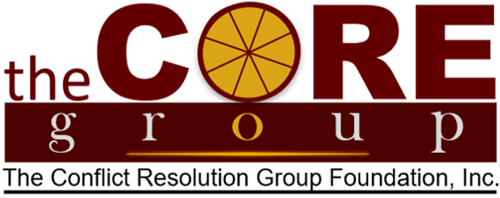Case Study D:
Mediation between Business Partners: Restoring Relationships amidst Divestment
BACKGROUND: The business partners were members of the board and executive committee of the company. Tension and unresolved conflict divided the 7 business partners into 2 factions with their own group leaders, let's call them Alex and Brian. The 7 partners had initially joined forces with shared aspirations and a common vision for their business venture. However, as the business progressed, conflicts emerged, stemming from divergent opinions, conflicting interests, and a breakdown in communication. These conflicts eventually led to a decision to divest their interests and part ways, with both factions filing cases against each other in court.
CHALLENGES FACED:
Divergent Goals and Interests: Alex and Brian had developed different goals and interests over time, leading to conflicting visions for the future of the business.
Communication Breakdown: Poor communication between the partners had resulted in misunderstandings, escalations of conflicts, and strained relationships.
Emotional Tensions: The conflicts had created emotional tensions, eroding trust and making it challenging to find a resolution that would satisfy both partners. The legal cases further complicated the situation and affected the operations and assets of the business.
THE APPROACH: The CoRe Group held values-based mediation sessions to address the challenges faced by Alex and Brian, taking into account the ongoing legal cases. The key steps in the mediation process included:
Establishing Mediation Framework: The mediators facilitated an agreement between the partners to engage in a mediation process, recognizing the existence of the legal cases and outlining the goals, rules, and expectations for the sessions.
Individual and Joint Sessions: The mediators conducted individual sessions with each partner to gain a deeper understanding of their perspectives, concerns, and desired outcomes. Joint sessions were also held to encourage open dialogue and facilitate constructive communication.
Identifying Common Ground: Through guided discussions, the mediators helped the partners identify areas of agreement and shared interests, taking into account the legal context and the impact on the business operations and assets.
Collaborative Negotiations: Building upon a common ground, the partners engaged in collaborative negotiations to find mutually acceptable solutions for the divestment process. They explored different options and worked together to address each other's concerns.
Restoring Relationship and Setting Expectations: Throughout the mediation process, the mediators encouraged open dialogue, empathy, and active listening to rebuild trust and foster a positive relationship between the partners. They also facilitated discussions to establish clear expectations and boundaries for their future interactions, including action to withdraw legal action.
THE OUTCOMES AND IMPACT: The mediation process led to the following outcomes:
Resolved Conflicts: Through collaborative negotiations, Alex and Brian were able to find a resolution for the divestment process that met their individual needs and interests.
Restored Relationship: The mediation process allowed the partners to rebuild their relationship by fostering understanding, empathy, and improved communication, despite the adversarial nature of the legal proceedings. They made commitments to support each other's future business ventures and made commitments to avoid competing with each other.
Enhanced Self-Awareness: The partners gained a deeper understanding of their own goals, interests, and values. They acknowledged the need for different paths to achieve their individual aspirations.
Knowledge for Future Collaborations: The mediation process equipped Alex and Brian with valuable skills in conflict resolution, communication, and negotiation, which they could apply in future business partnerships or collaborations
Minimized Impact of Legal Cases: By engaging in mediation, Alex and Brian were able to mitigate the detrimental effects of the ongoing court cases on their business operations and assets. They regained control over the decision-making process and focused on finding common ground, rather than prolonging costly and time-consuming litigation.
THE CONCLUSION: This case study demonstrates the effectiveness of mediation in resolving conflicts between business partners seeking to divest their interests, even in complex situations where legal cases have been filed. Despite the partners initially resorting to legal action, The Conflict Resolution Group Foundation Inc. facilitated a mediation process that allowed for constructive dialogue, understanding, and the preservation of their relationship amidst the ongoing legal proceedings.
The mediation process not only led to the resolution of conflicts and a mutually acceptable divestment process but also contributed to the restoration of the partners' relationship. By fostering open communication, empathy, and collaboration, the partners were able to navigate the legal complexities while maintaining a positive outlook for their future endeavors.
This case study highlights the importance of mediation as a powerful tool for conflict resolution, even in situations involving legal disputes. The Conflict Resolution Group Foundation Inc. encourages businesses facing similar challenges to consider mediation as a viable alternative to litigation. Mediation offers the opportunity to find mutually acceptable solutions, preserve relationships, and minimize the negative impact on business operations and assets, even in the context of ongoing legal cases.
INTRODUCTION: This case study highlights a successful mediation process between business partners who were experiencing conflicts and seeking to divest their interests in the business. Through collaborative negotiations, the partners were able to resolve their conflicts, resulting in a restored relationship and a mutual understanding of their differing goals and interests, despite having filed cases against each other in court.


